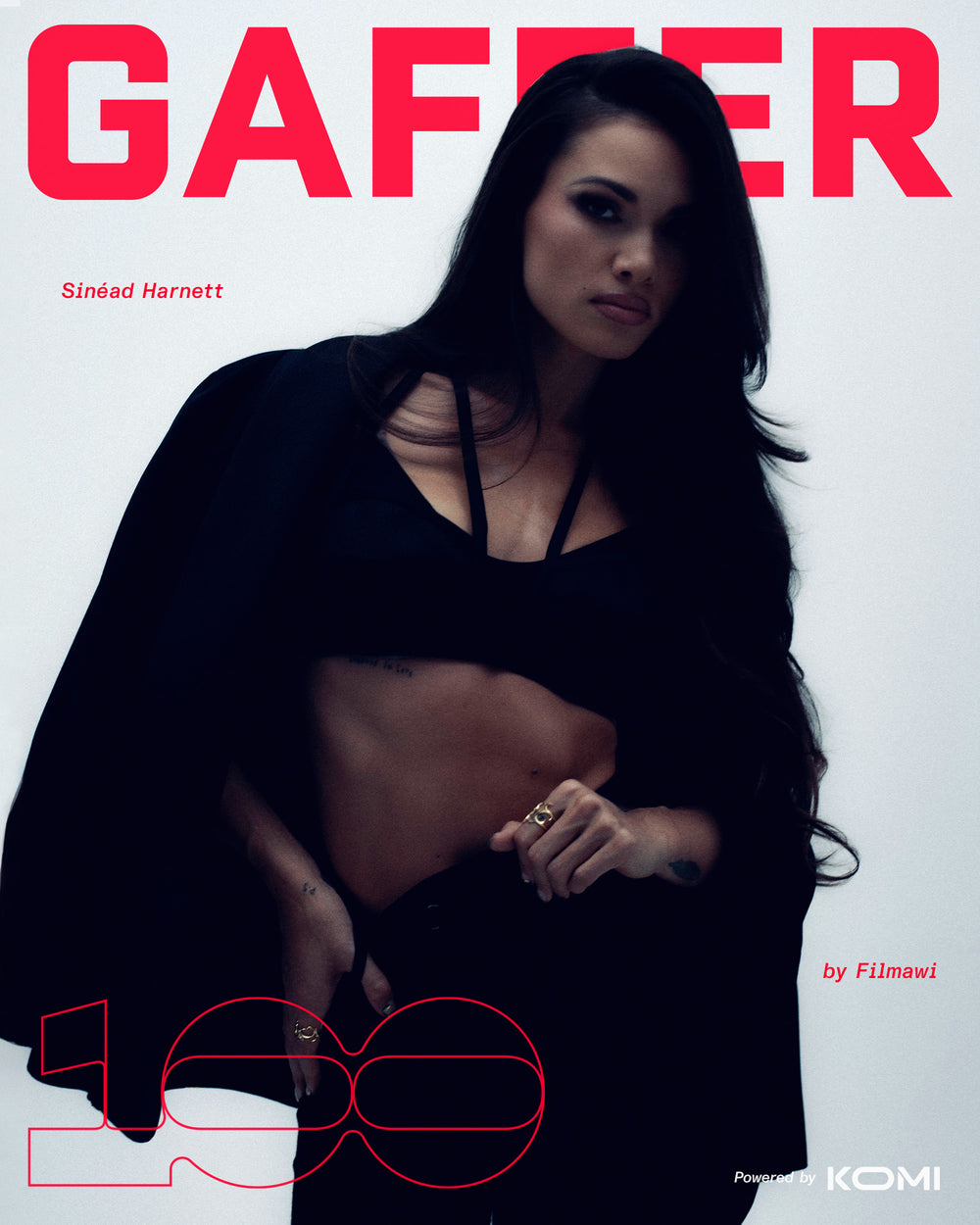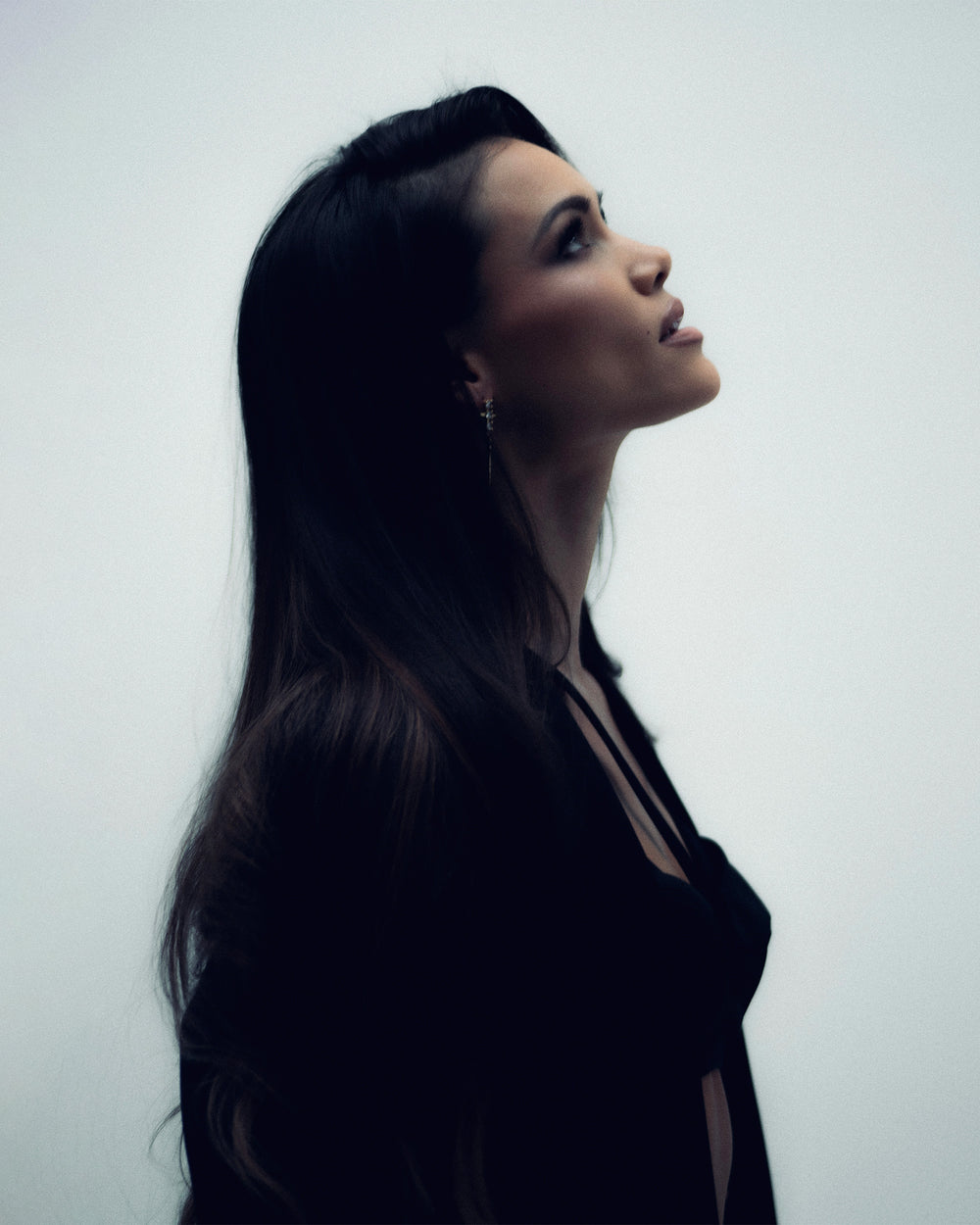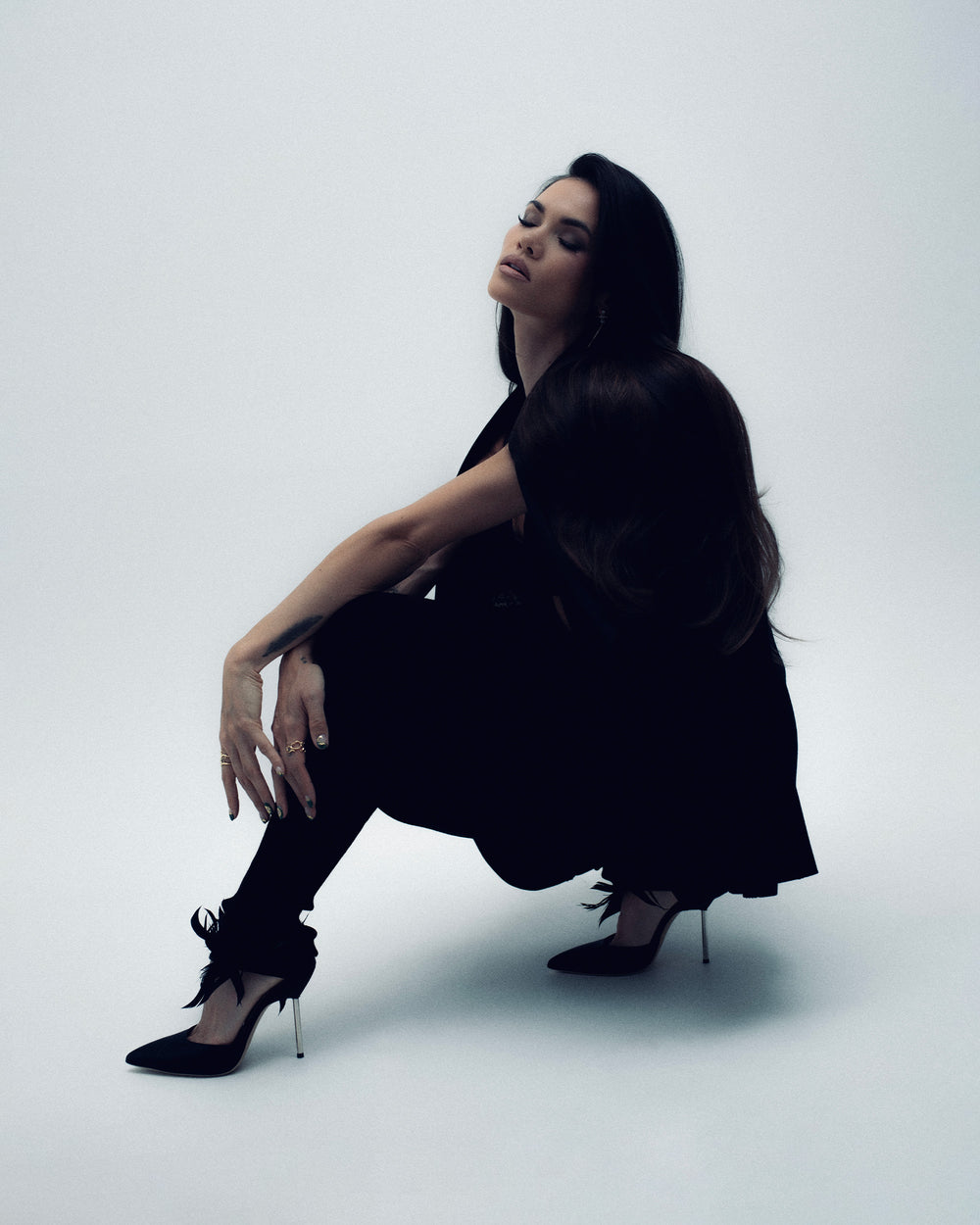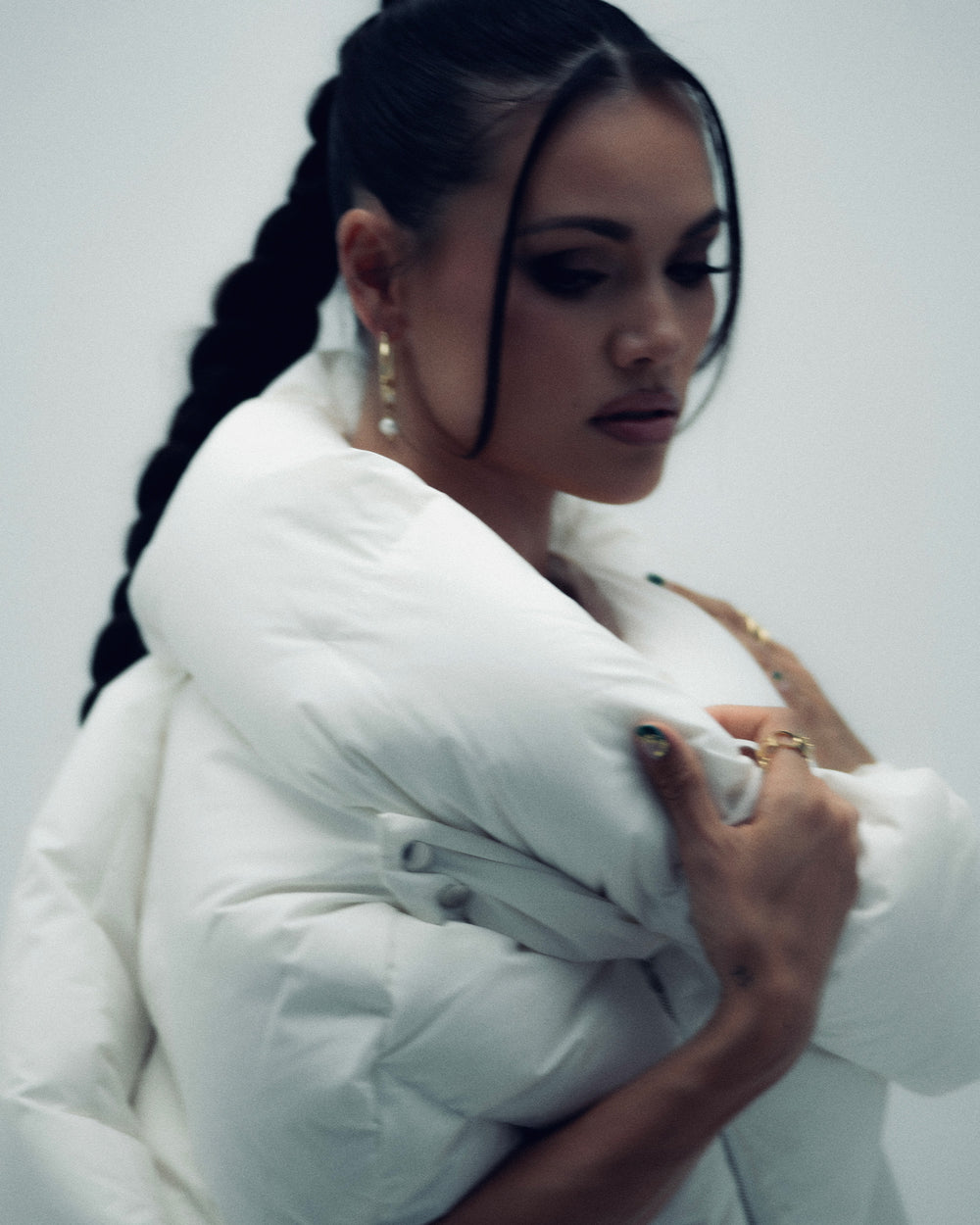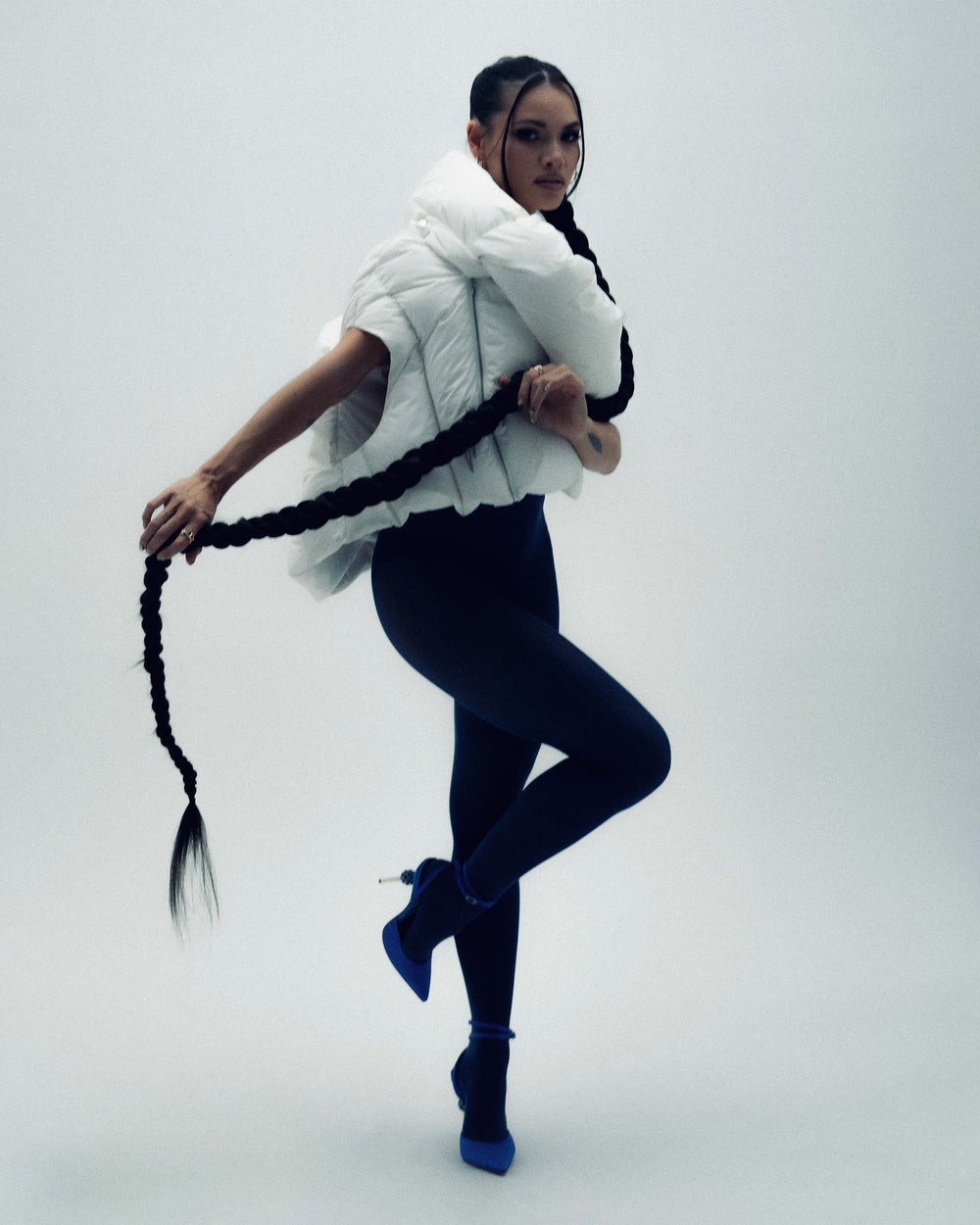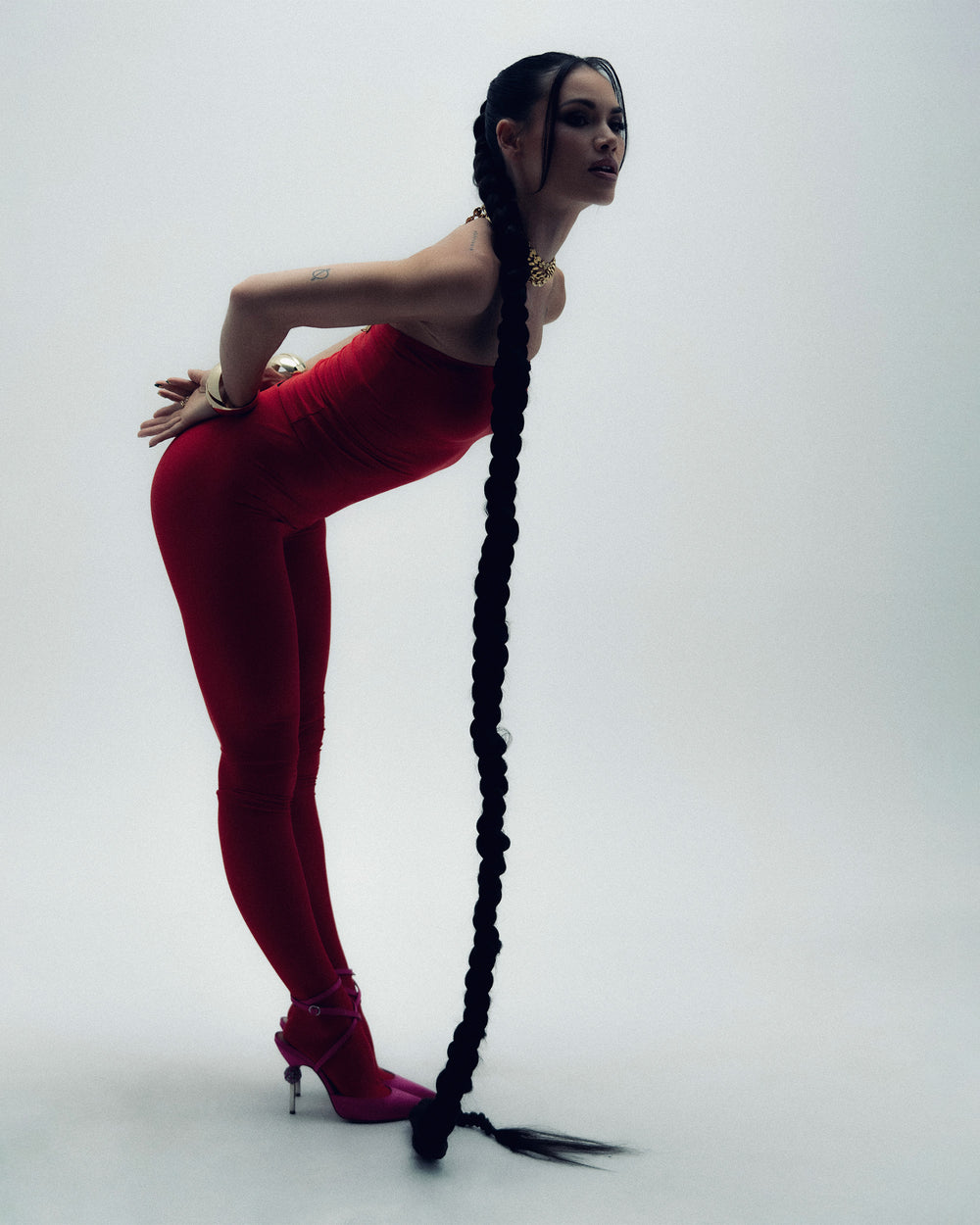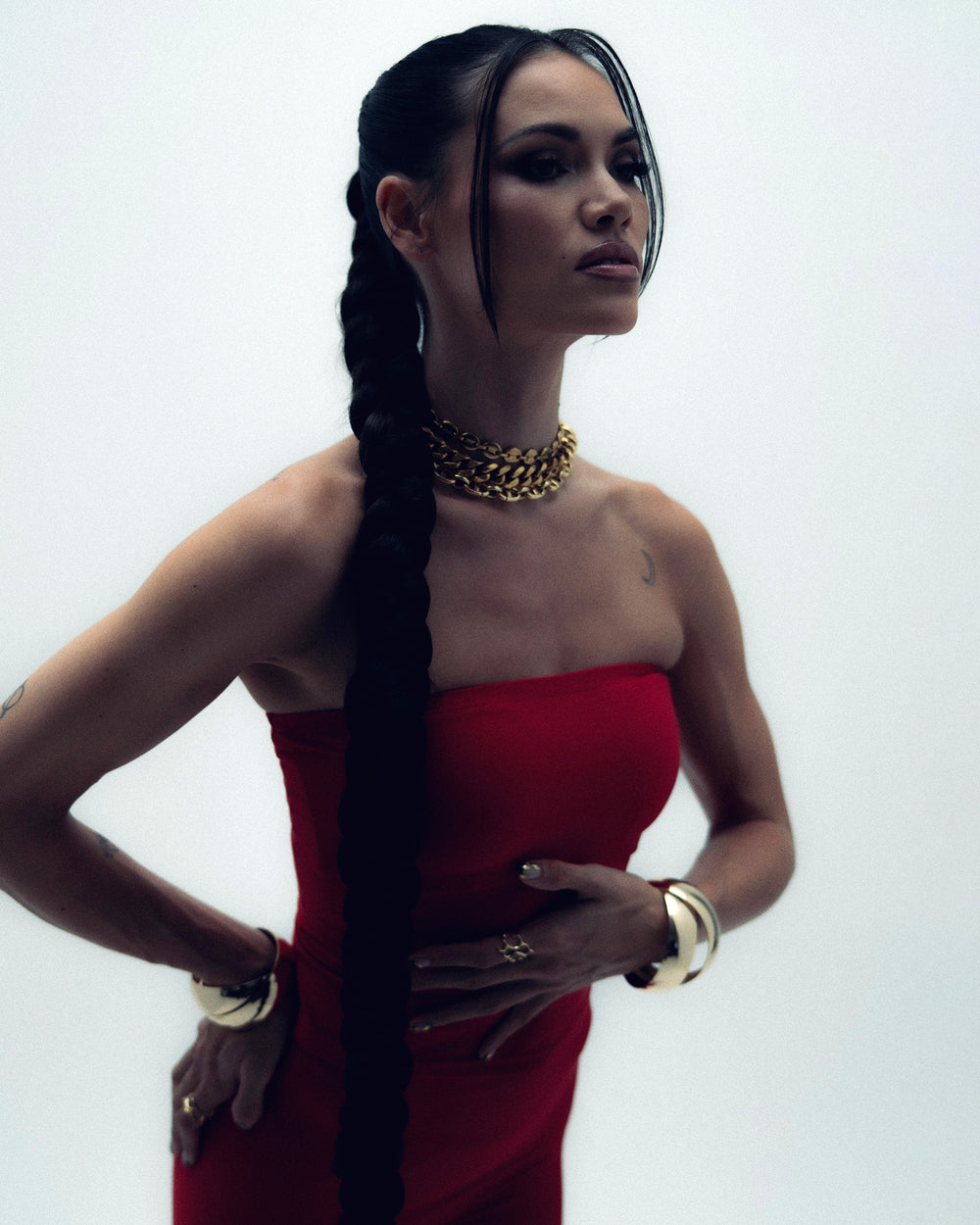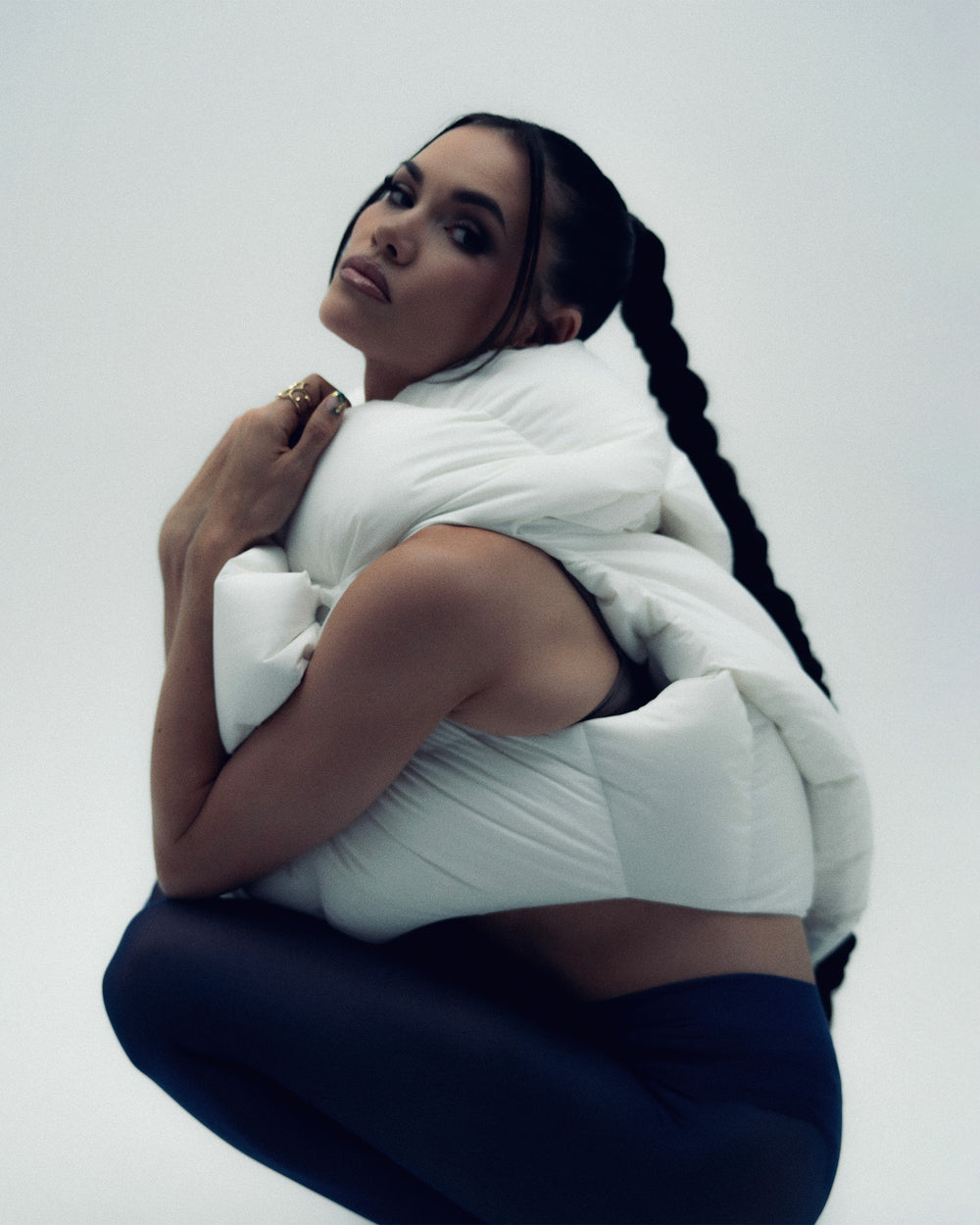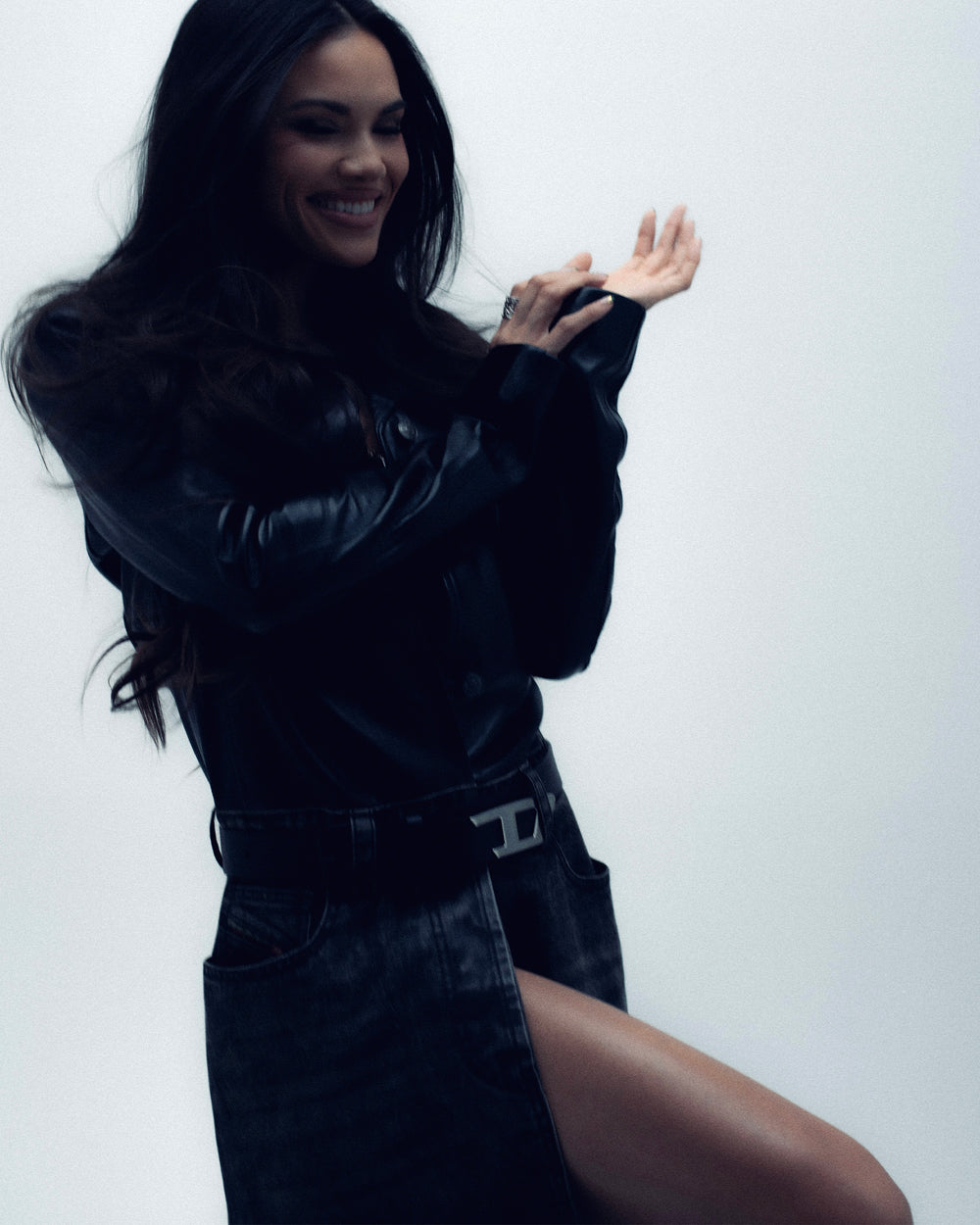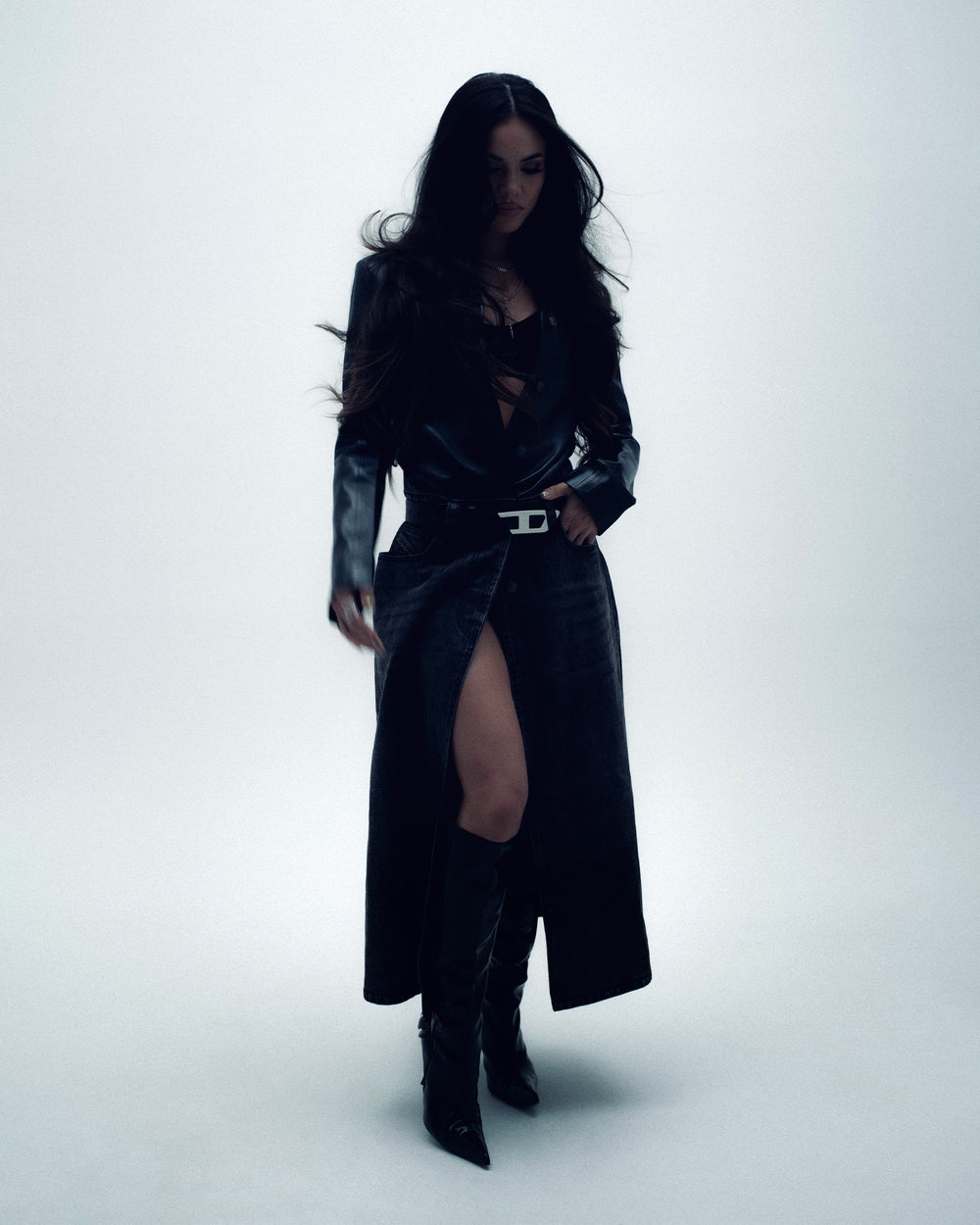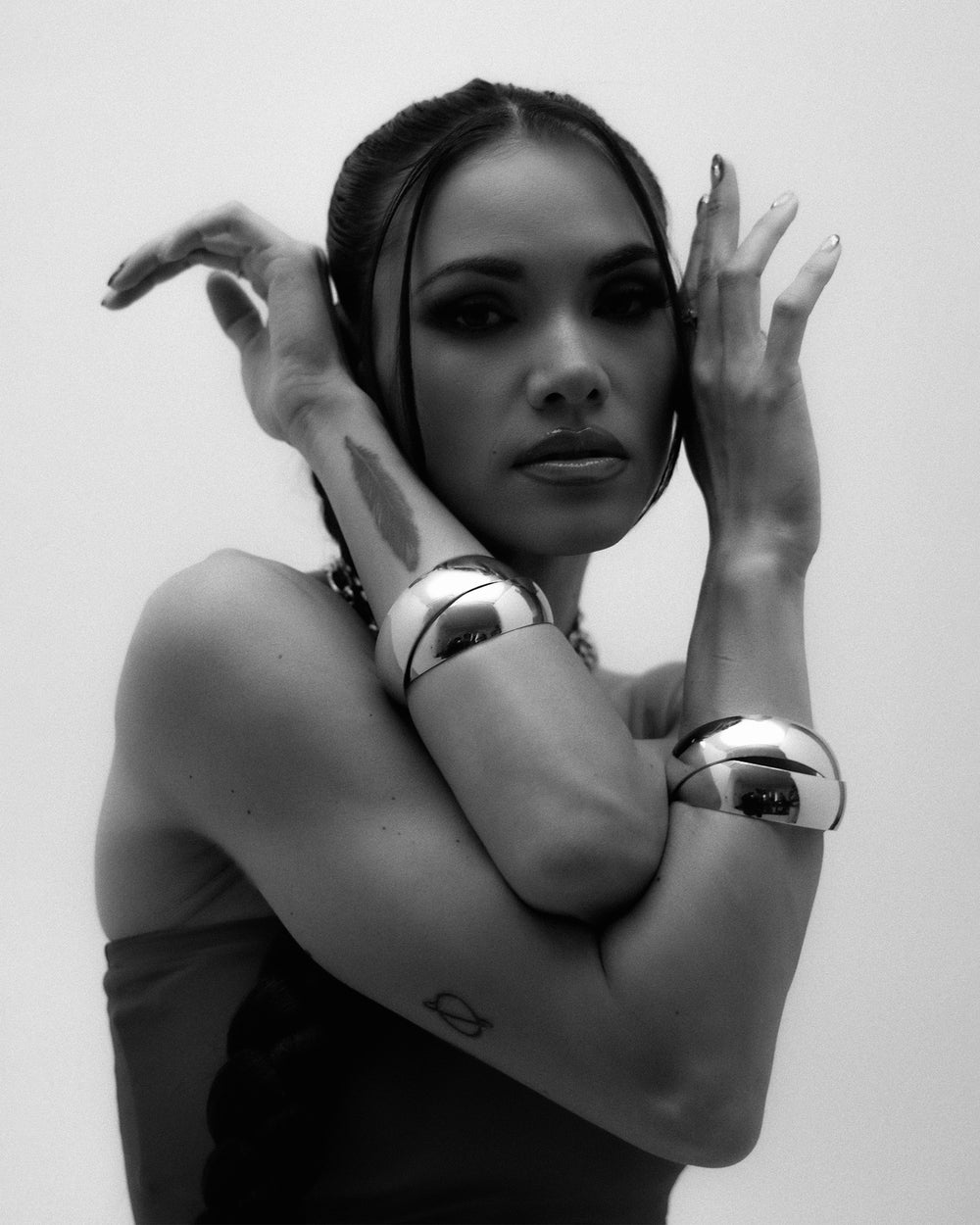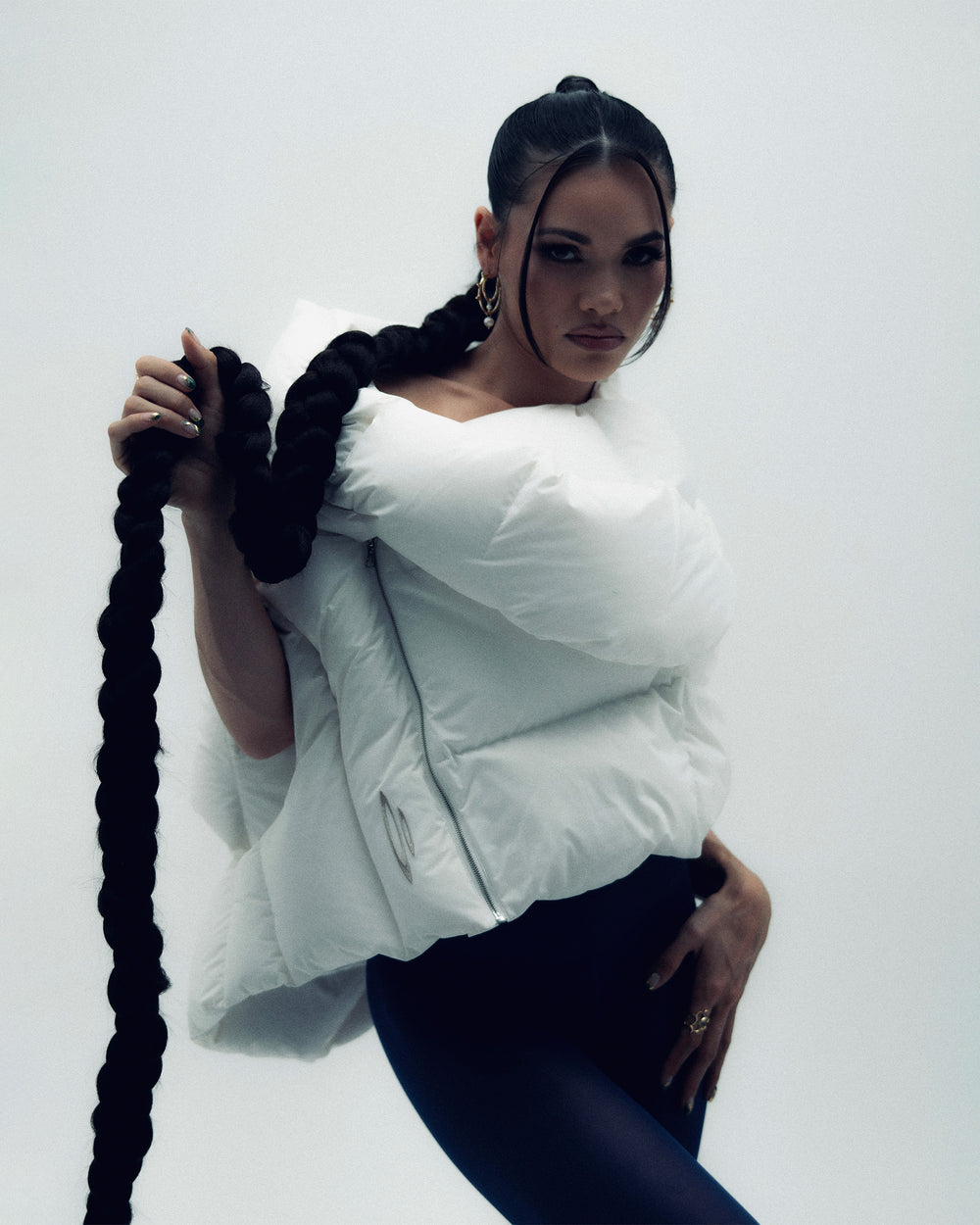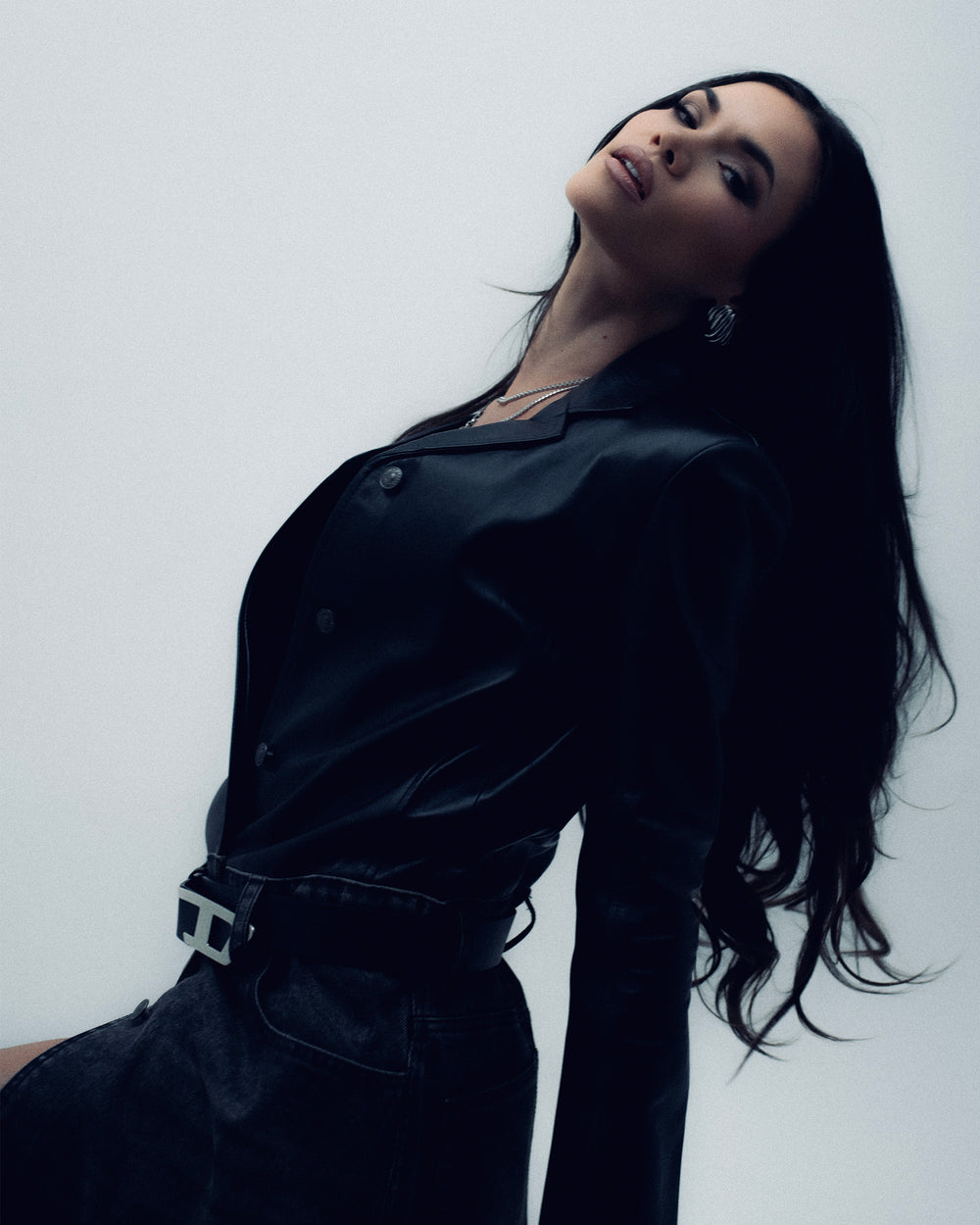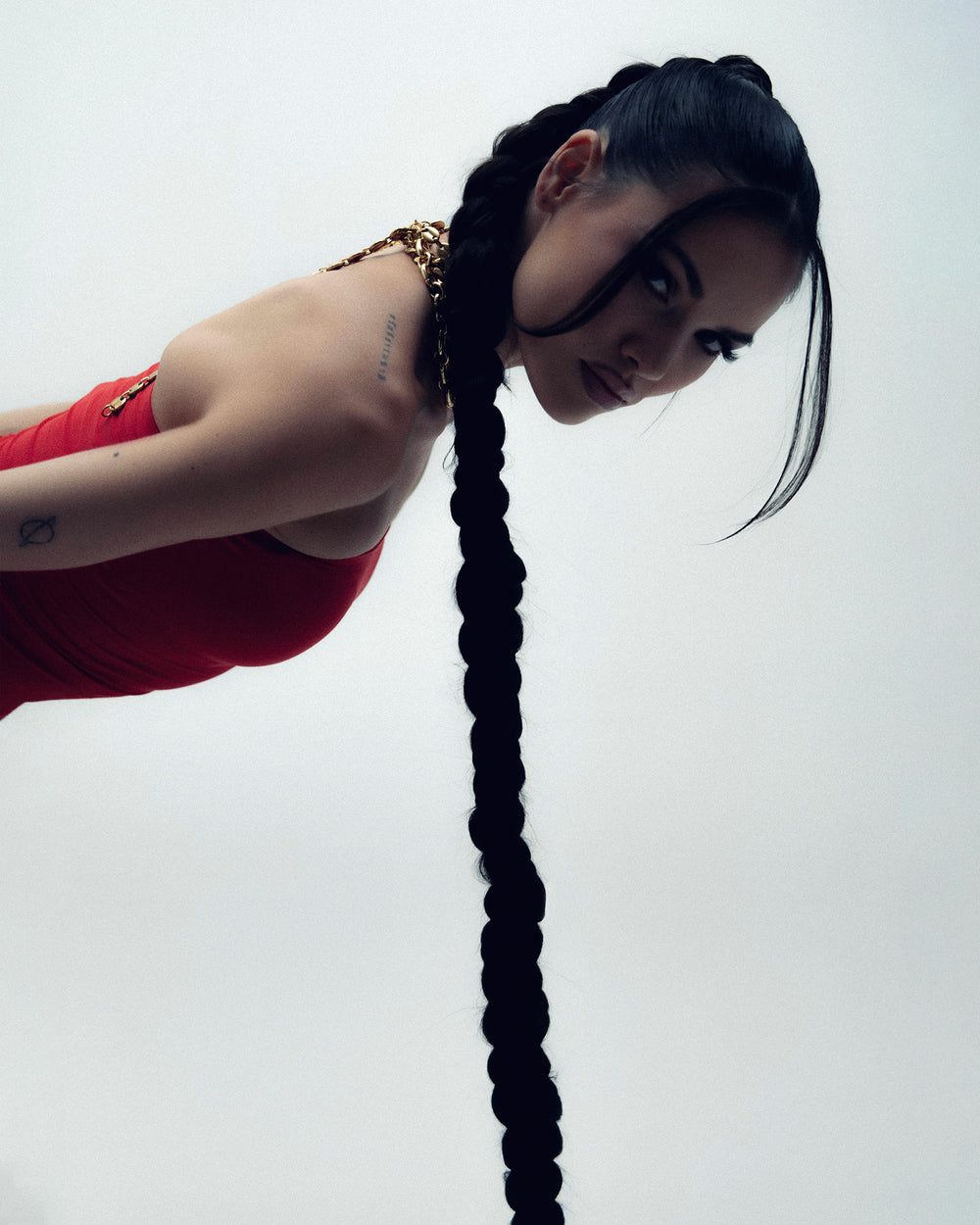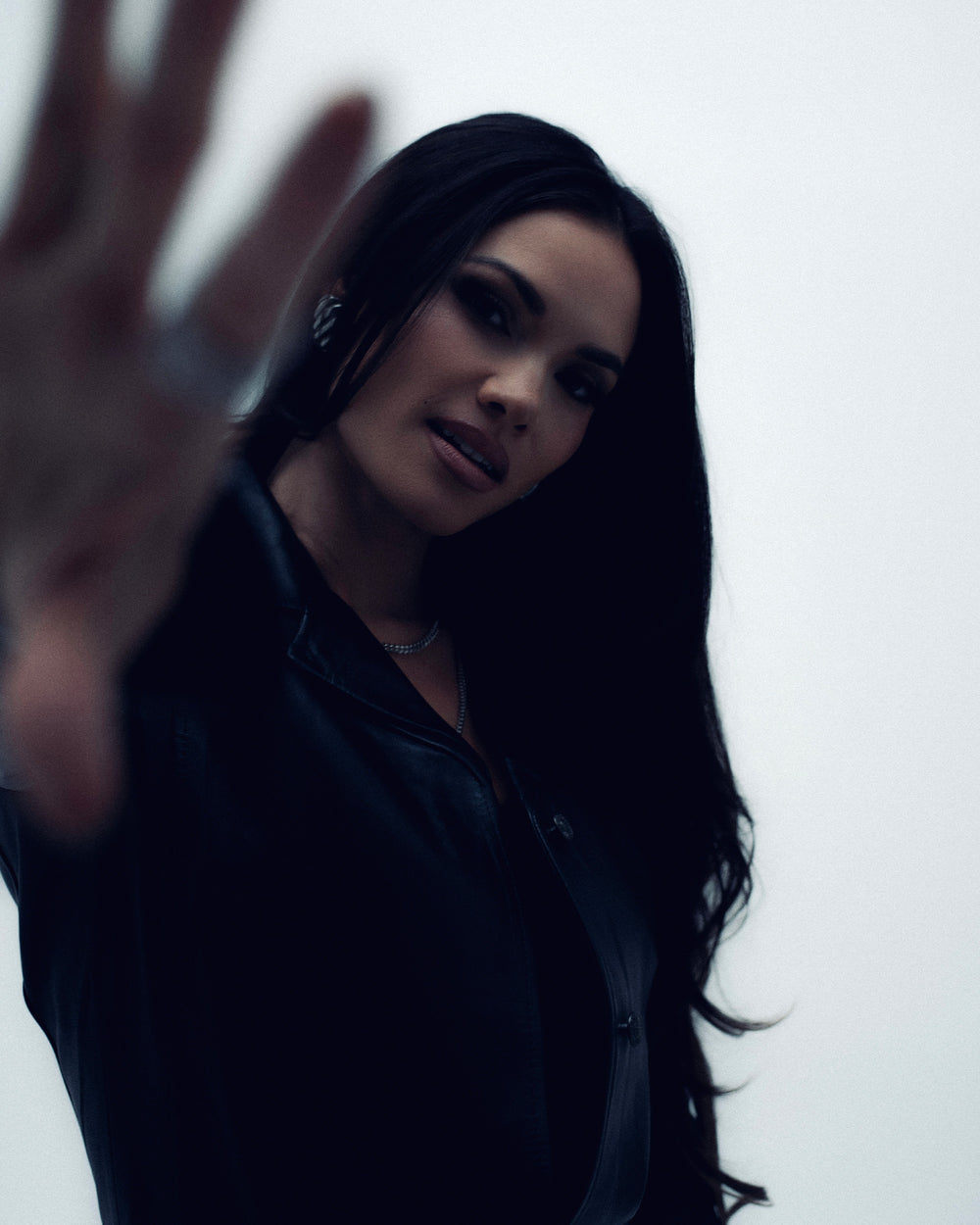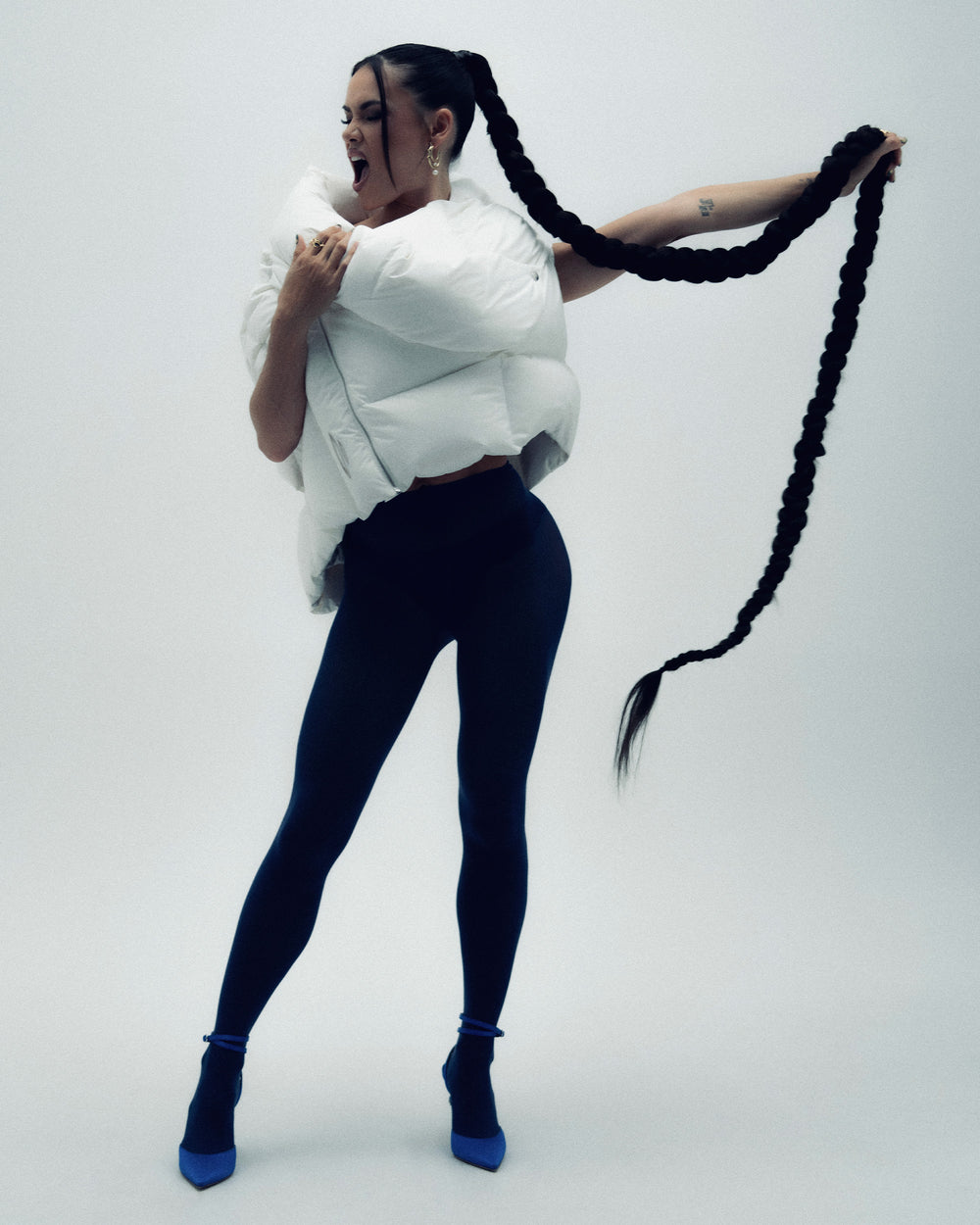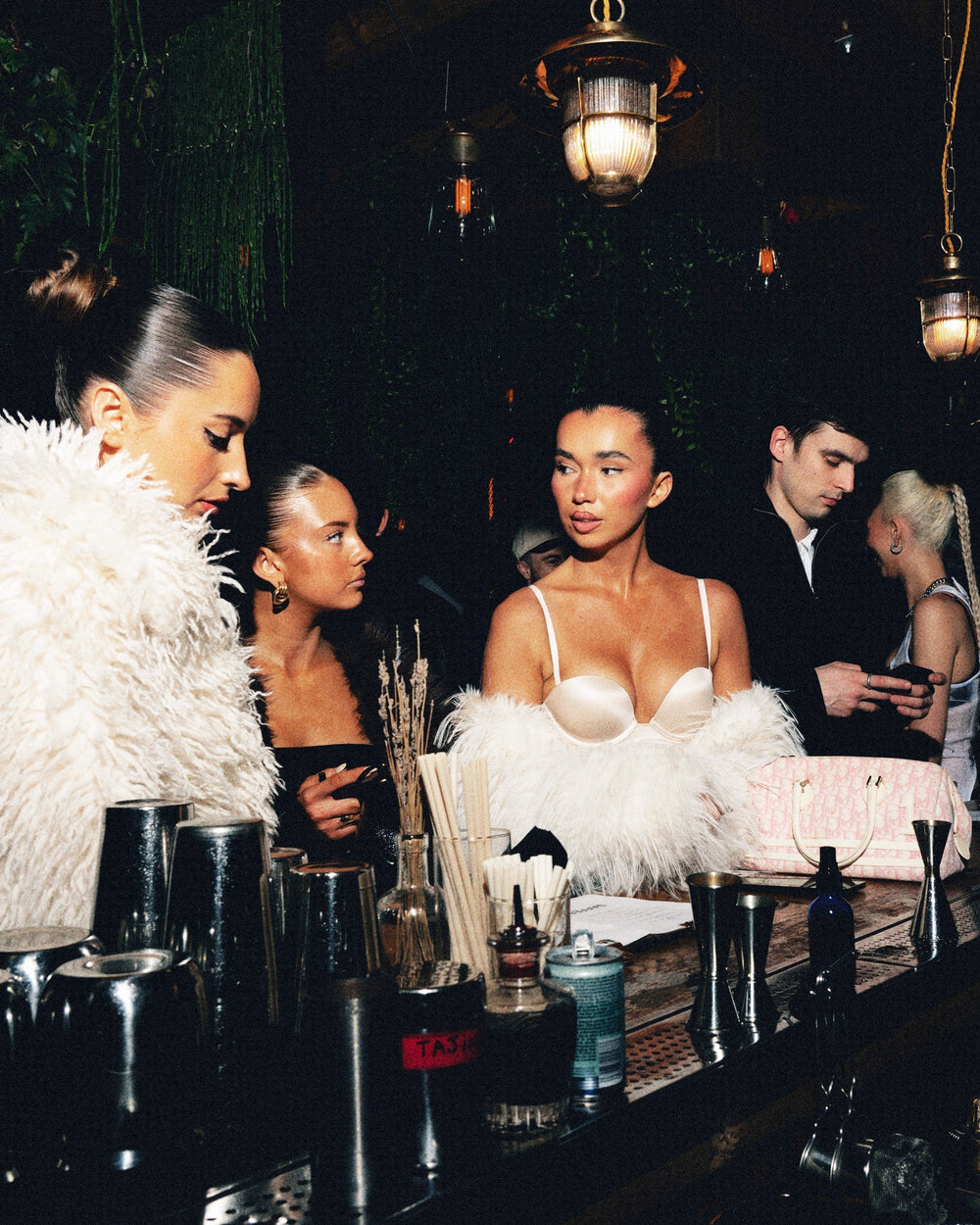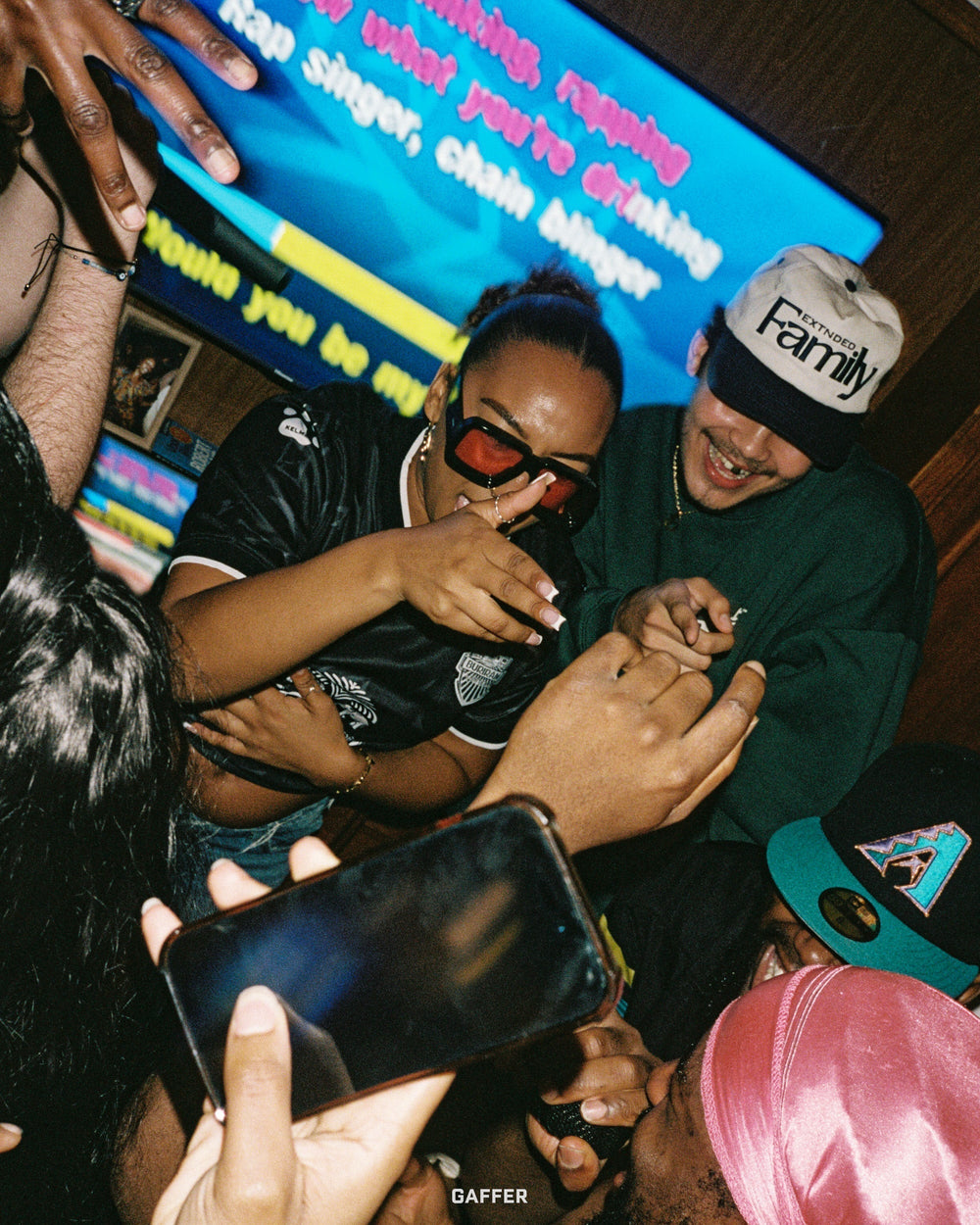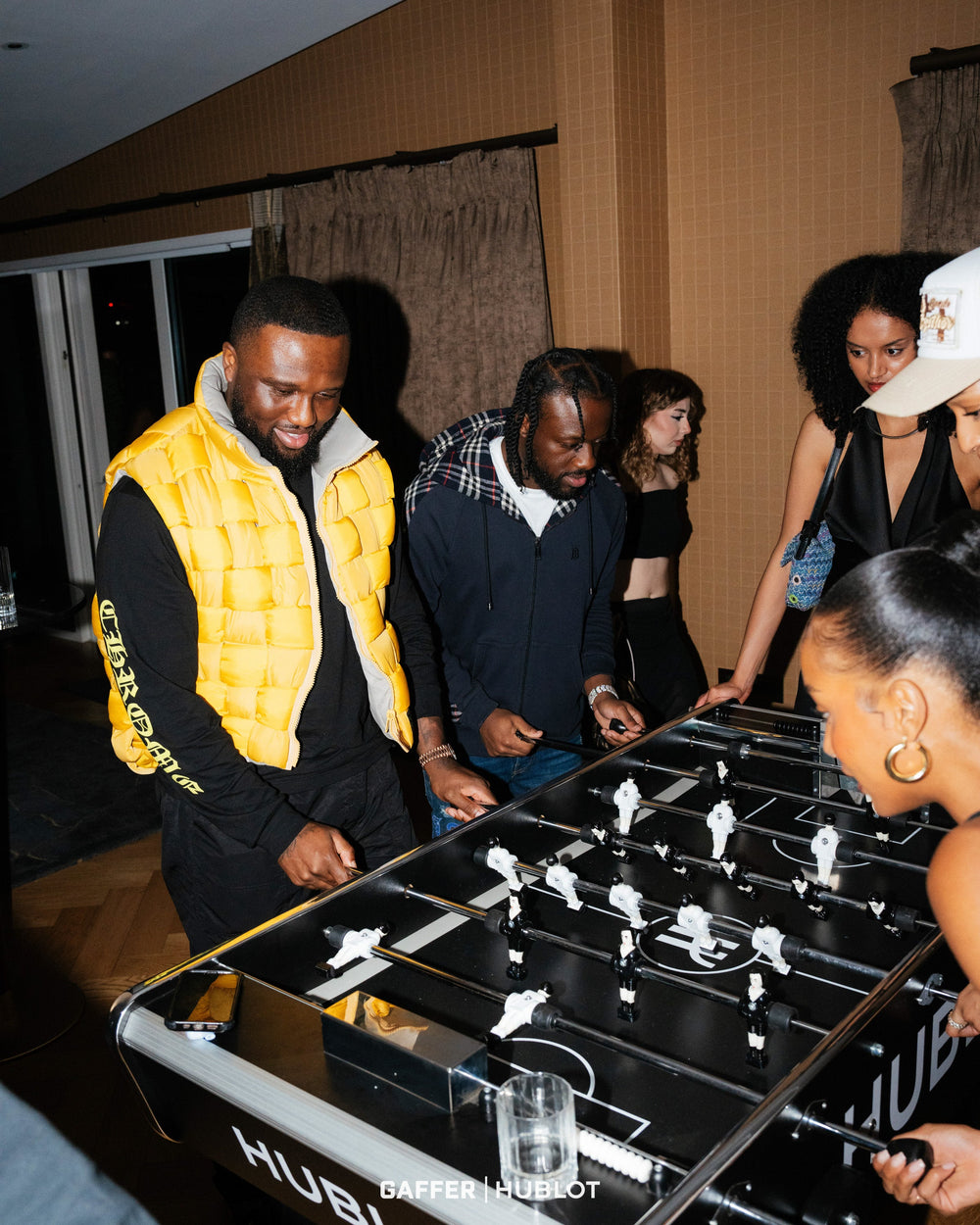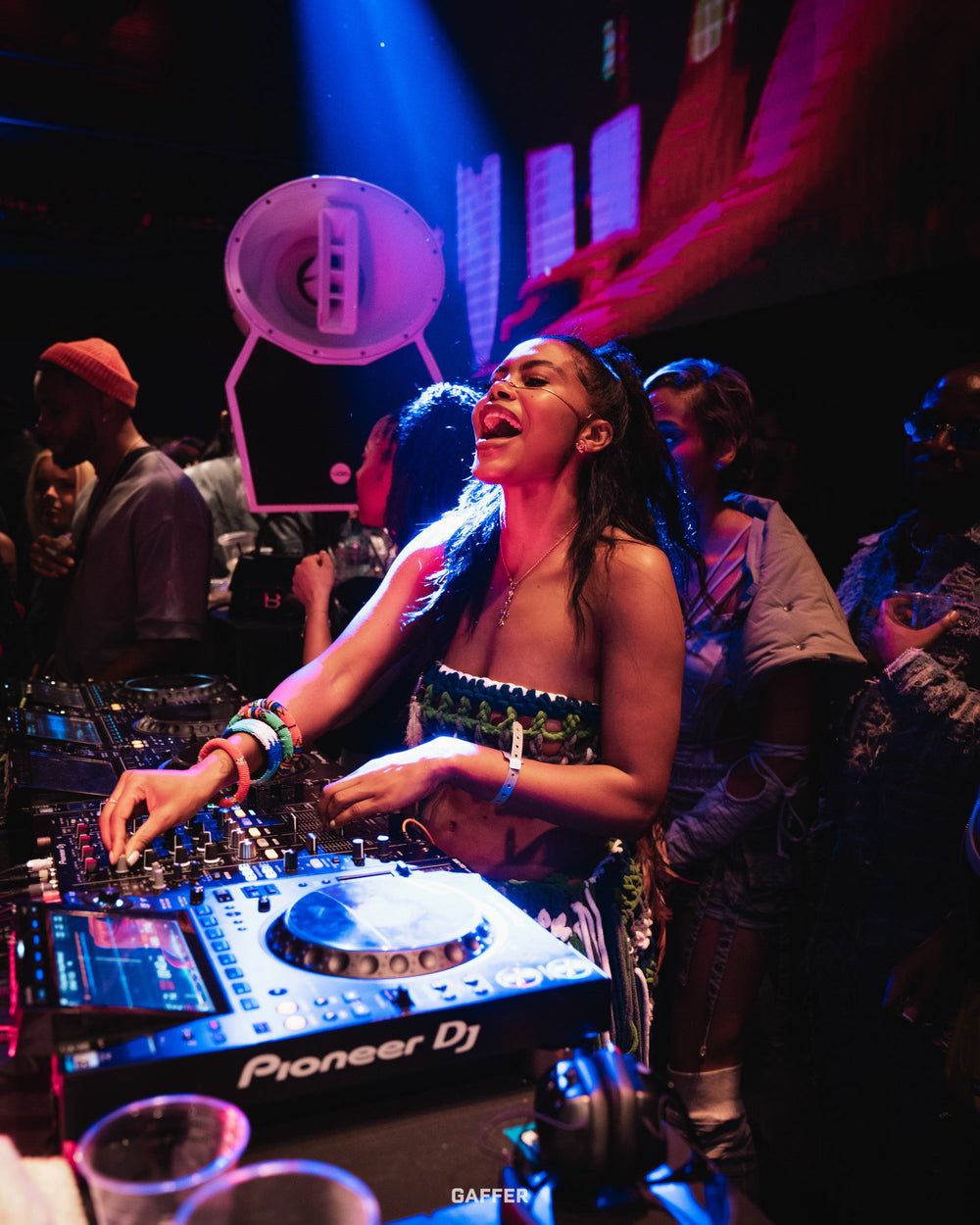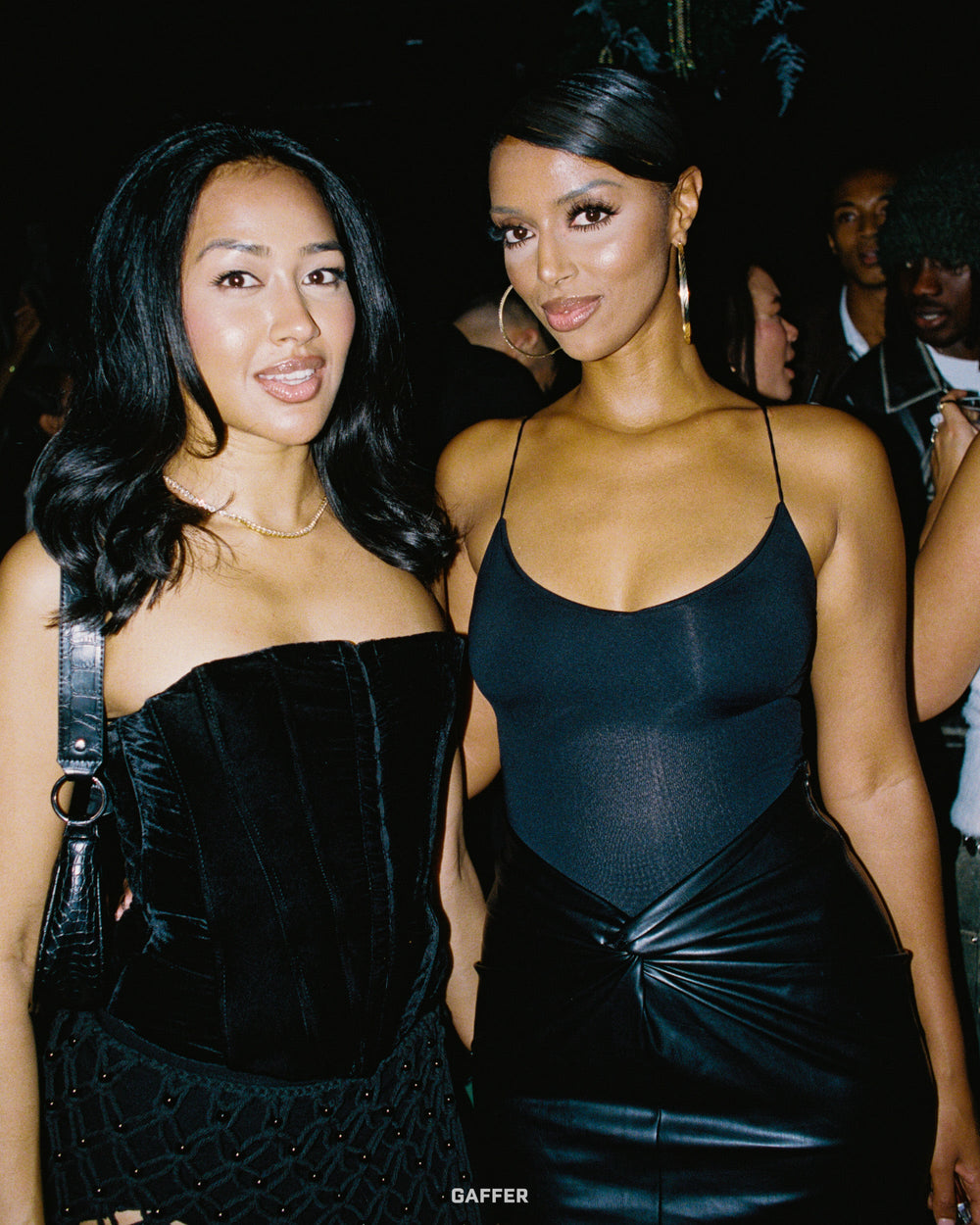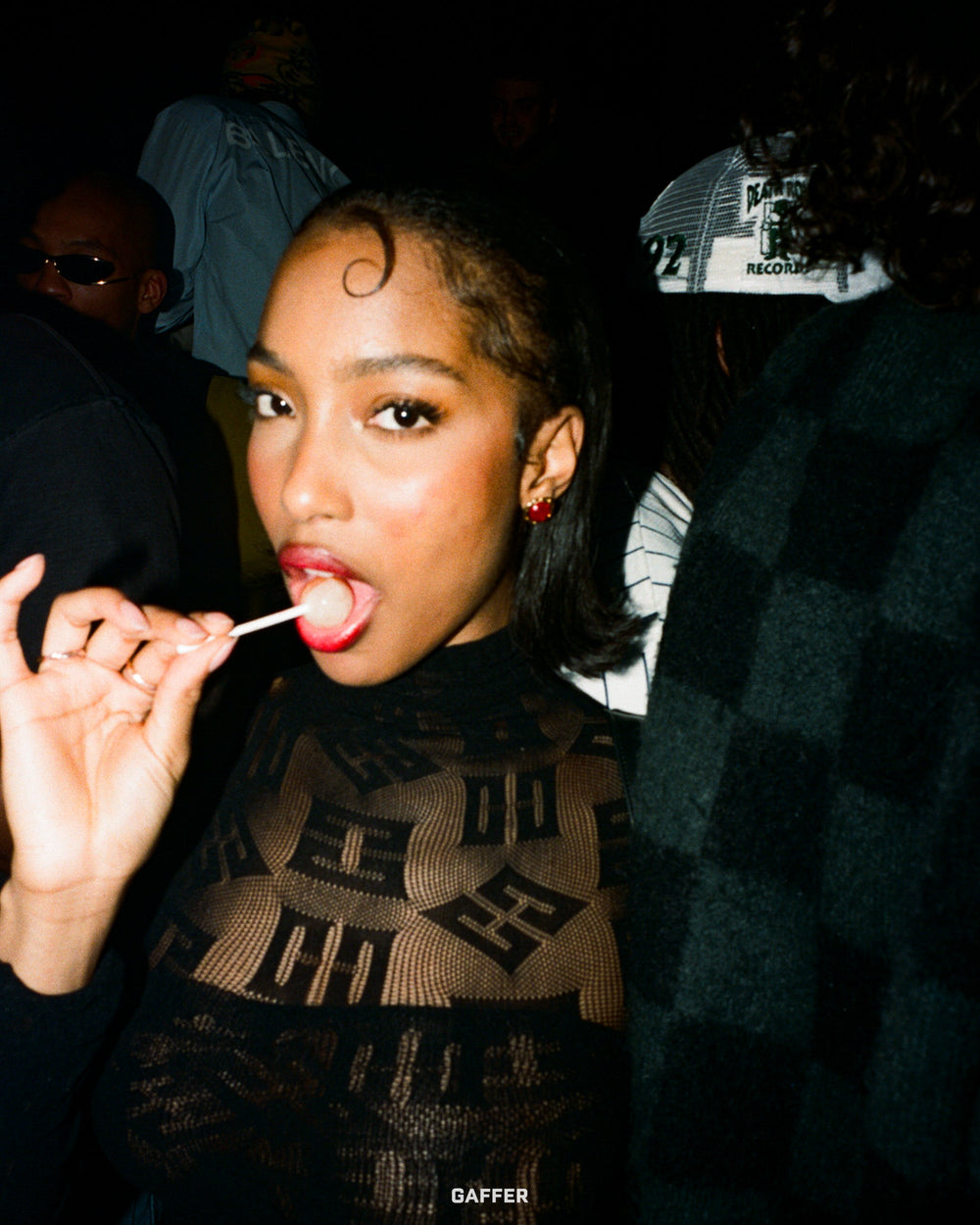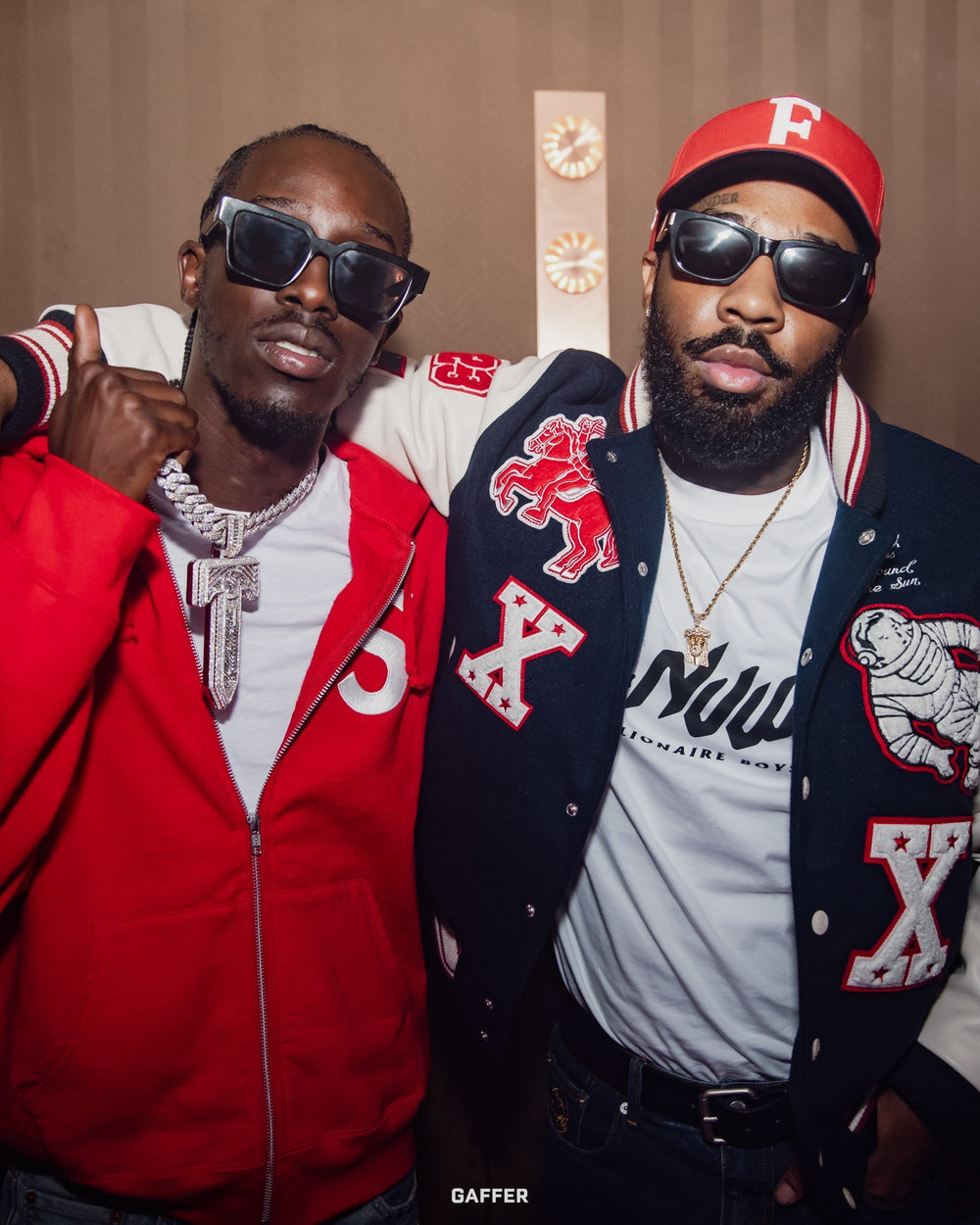Sinead Harnett: All Of This Will Mean Something
Powered by

PHOTOGRAPHY: FILMAWI / STYLING: CARA HAYWARD / CREATIVE DIRECTION: CHARLOTTE MAYUMI PHIPPS / MAKE UP: MATTHEW FISHMAN / HAIR: Rachel Lita / WORDS: AMBA MENDY
Sinéad Harnett walks into the studio like she already knows the story she wants to tell. Not in a loud way. More in the way a storm rolls in quietly — calm, sure, inevitable. She’s soft-spoken, sharp-eyed, and funny as hell. But underneath the ease is an artist who’s done the deep work.
She’s lived in the dark corners, written from them, wept through them, and then figured out how to turn the mess into music. Not for show. For survival.
"Daniel Kaluuya said to Jay Shetty that his job was to tell the truth," she says. "And I remember watching that and thinking, yeah, that's my job too. I can’t dramatise anything. I have to feel it. Otherwise, it’s just noise."
Sinéad doesn’t do noise. She makes room for meaning. From breakout singles to international tours, her career has been a slow burn, not a fast flame. And that pace suits her. She’s the kind of artist who holds tension in one hand and tenderness in the other. She’s not afraid to say she needs time.
“I don’t write to get over something. I have to go through it first. Properly. Sometimes that takes a year. And sometimes it just needs a change of scenery, a new room, a new view. But most of the time, I just sit in it until I’m ready to come out.”
Her latest album was born from that place. One of transition, trauma, and the awkward growing pains of self-discovery. One track came easy: Leo Bear, a song written for her nephew. “It was just love. That kind of pure, I’d-take-a-bullet-for-you love.” The hardest? Thinking Less. “I remember just sitting there, nothing coming. I felt blocked. But it still came. Eventually. And now it’s one of my favourites.”
There’s a raw beauty in how she talks about her process. She never pretends it’s glamorous. In fact, her writing rituals are often more tissues and dark rooms than candles and crystals. “On my own, in a dark room, with some tissues for the tears,” she says, deadpan. Then she laughs, like she knows how that sounds and how necessary it is.
“All of this is going to amount to something. It’ll be justified one day.”
Sinéad believes that. She has to. It's what keeps her going. And it’s what allows her to hold space for other people too. The fans. The ones who turn up to meet-and-greets and quietly tell her that her voice helped them feel seen. “They know too much,” she says. “Sometimes I feel like I need them more than they know.”
But this isn’t just therapy in song form. There’s strength here too. A sharp tongue when it needs to show up. “The one I’m enjoying most on the album is this sassy bitch track,” she smiles. “I don’t know where she came from but I love her.”
Her influences come from every direction. Growing up in London meant melting pots. Club nights filled with old school garage, bashment, funky house. Teenage playlists stacked with Coldplay and Damien Rice. One minute it was heartbreak, the next it was hype. “I don’t think my ethnicity shaped my sound directly,” she says. “But the tough love in an Asian household? That definitely made me resilient.”
Resilience is something Sinéad’s needed in this industry and she’s still learning to protect herself in it. She remembers one of her earliest live moments. “I was biting my nails, hadn’t performed much, and this guy I was about to sing with said, ‘Don’t show them that. You give them a show. They bought tickets.’ And I was like, yeah. You can’t give in to your demons. You have to fake it sometimes. That was the best advice.”
“You can’t give in to your demons. You have to pretend everything’s okay, just for a little while.”
Even now, with years behind her, she still gets nervous. But she’s learned to channel it. A short prayer. A bit of meditation. A voice memo to herself. She doesn’t do FaceTime, calls it a “violation of privacy,” but voice notes are fair game.
The dream collabs? PartyNextDoor (“I’m obsessed. He’s one of one”), Frank Ocean, Donny Hathaway, SZA. And if she could design her own dinner party, she'd bring in some badass energy. Think Lucy Liu in Kill Bill. “I’d be Lucy L. Boss,” she says, grinning.
She jokes about being a grandma at heart. Someone who’s in bed by nine, who'd rather bowl than club, who finds joy in TED Talks and podcasts about unlearning old beliefs. “I’d probably be Joe Dispenza’s protégé,” she laughs. She’s spiritual, but grounded. Curious, but not naive.
“I’m trying to make more time for the people I love. They’re 11 hours away. And I miss them.”
Sinéad isn’t chasing the spotlight anymore. She’s chasing clarity. Space. Balance. She’s done the chasing of success. Now, she wants it to come to her, if it’s meant to.
Ask her what her TED Talk would be, and she doesn’t miss a beat. “How to believe in yourself. How to change your negative core beliefs. Basically, how to unlearn, so you can learn again.”
The older she gets, the more that matters. Not the charts, not the validation, but the inner stuff. The stuff no one sees. “You have to ask yourself, bone honest. Do you like who you’re around? Do you like who you are when you’re with them?”
She pauses, then nods. “Yeah. I’m very grateful.”
